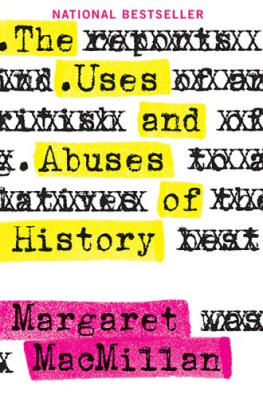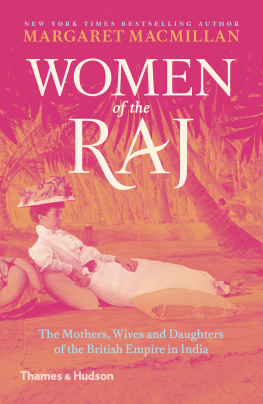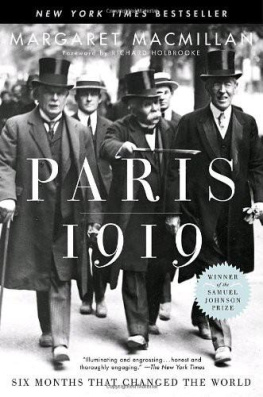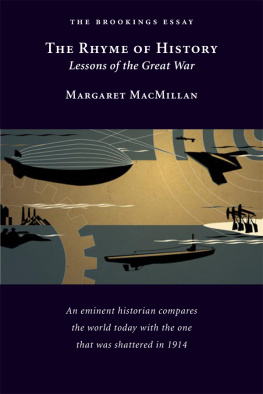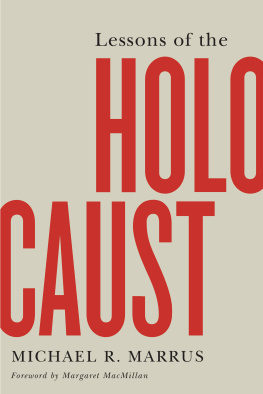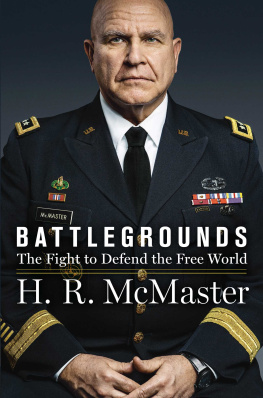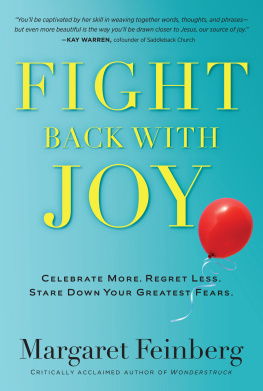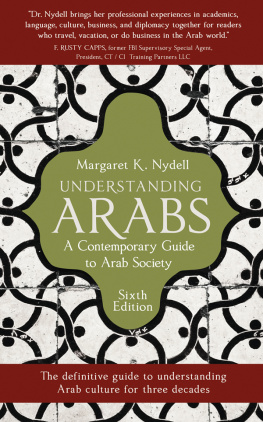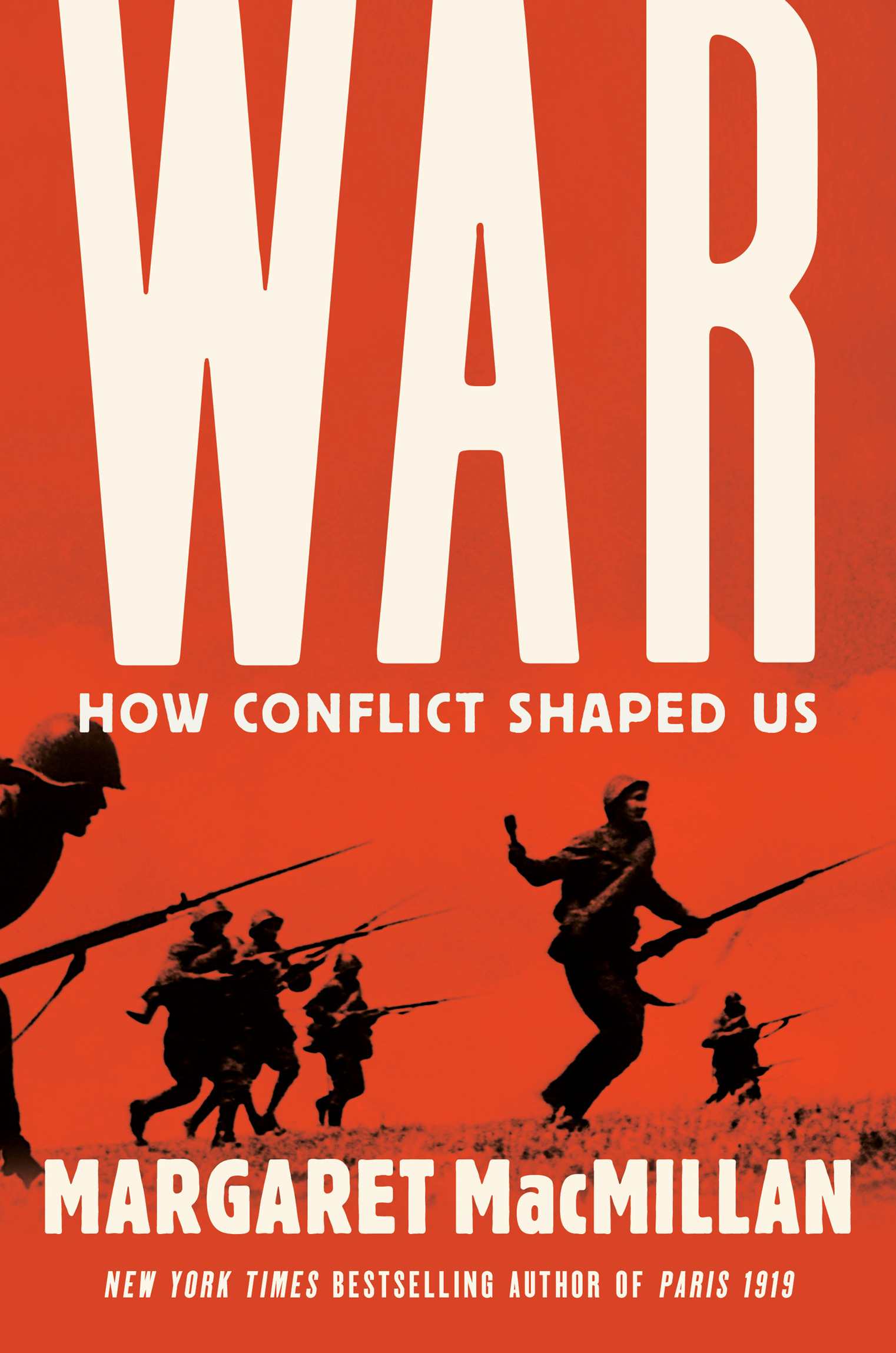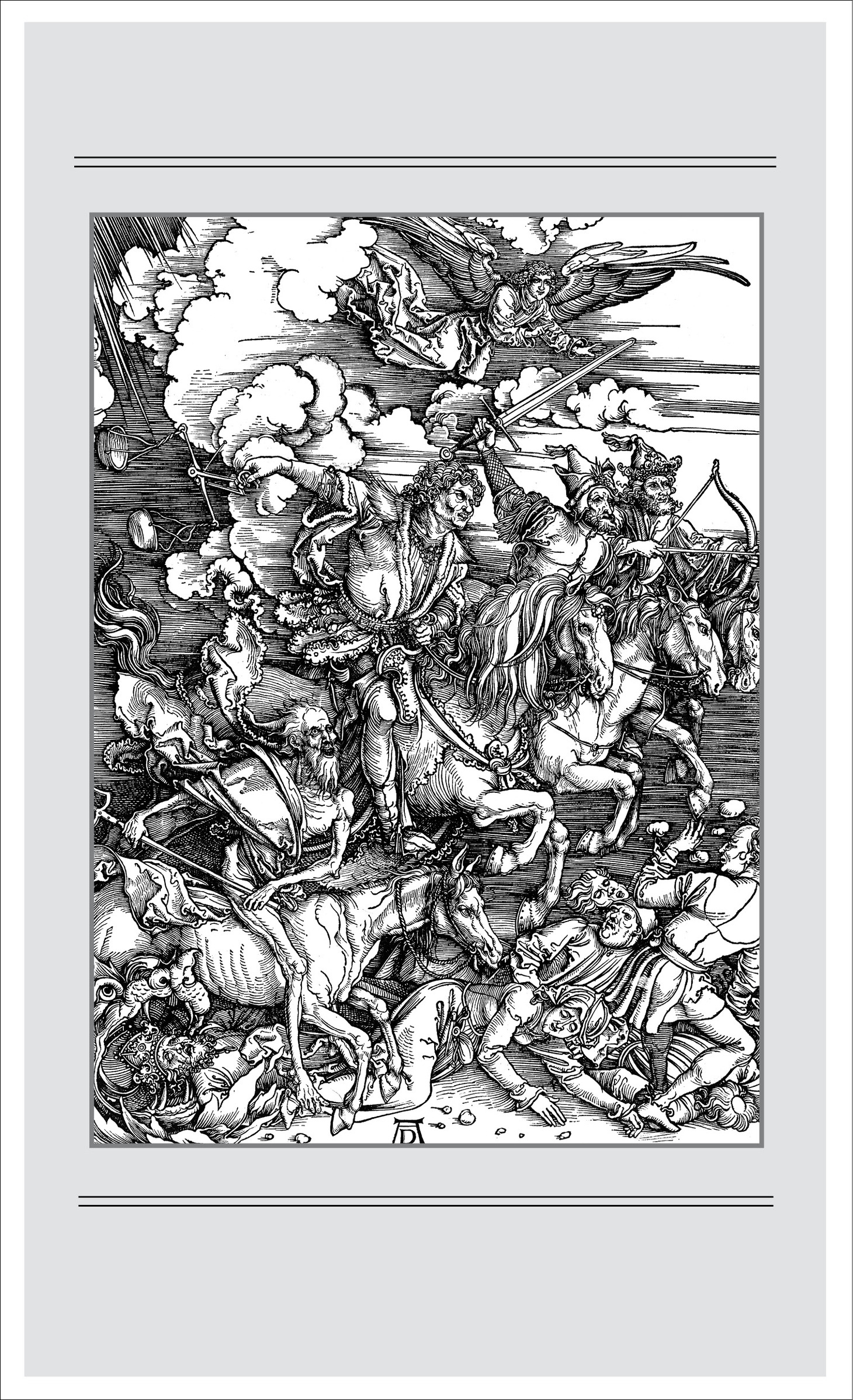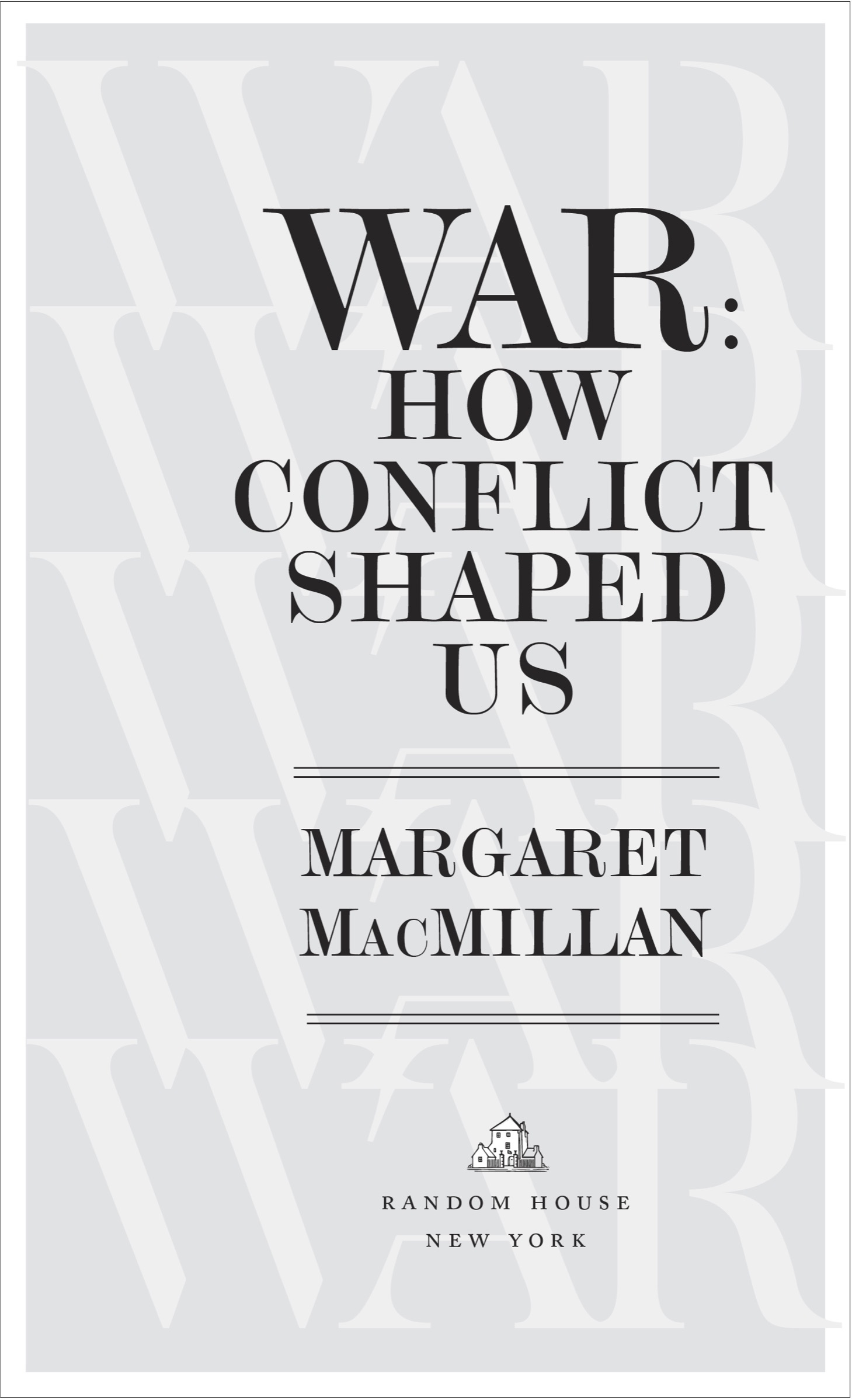Contents
Landmarks
Print Page List
Copyright 2020 by Margaret MacMillan
All rights reserved.
Published in the United States by Random House, an imprint and division of Penguin Random House LLC, New York.
R ANDOM H OUSE and the H OUSE colophon are registered trademarks of Penguin Random House LLC.
Originally published in the United Kingdom by Profile Books, London. Published in Canada by Allen Lane, an imprint of Penguin Random House Canada.
LIBRARY OF CONGRESS CATALOGING-IN-PUBLICATION DATA
Names: MacMillan, Margaret, author.
Title: War : how conflict shaped us / Margaret MacMillan.
Other titles: War, how conflict shaped us
Description: New York : Random House, [2020] | Includes bibliographical references and index.
Identifiers: LCCN 2020014498 (print) | LCCN 2020014499 (ebook) | ISBN 9781984856135 (hardcover) | ISBN 9781984856142 (ebook)
Subjects: LCSH: WarHistory. | War and society.
Classification: LCC D25.5 .M285 2020 (print) | LCC D25.5 (ebook) | DDC 355.0209dc23
LC record available at https://lccn.loc.gov/2020014498
LC ebook record available at https://lccn.loc.gov/2020014499
Ebook ISBN9781984856142
randomhousebooks.com
Book design by Barbara M. Bachman, adapted for ebook
Title-spread illustration: Albrecht Drer, The Four Horsemen of the Apocalypse (1498, woodcut), image Bridgeman Images
Cover design: Lucas Heinrich
Cover image: Corbis Historical / Getty Images
ep_prh_5.6.0_c0_r0
Contents
INTRODUCTION
War remains, as it always has been, one of the chief human mysteries.
SVETLANA ALEXIEVICH, The Unwomanly Face of War
W AR. THE WORD ALONE RAISES a range of emotions from horror to admiration. Some of us choose to avert our eyes as if the very act of remembering and thinking about war somehow brings it closer. Others of us are fascinated by it and can find in war excitement and glamour. As a historian I firmly believe that we have to include war in our study of human history if we are to make any sense of the past. Wars effects have been so profound that to leave it out is to ignore one of the great forces, along with geography, resources, economics, ideas, and social and political changes, which have shaped human development and changed history. If the Persians had defeated the Greek city-states in the fifth century B.C. ; if the Incas had crushed Pizarros expedition in the sixteenth century; or if Hitler had won the Second World War, would the world have been different? We know that it would although we can only guess by how much.
And the what-ifs are only a part of the conundrums we face. War raises fundamental questions about what it is to be human and about the essence of human society. Does war bring out the bestial side of human nature or the best? As with so much to do with war, we cannot agree. Is it an indelible part of human society, somehow woven in like an original sin from the time our ancestors first started organizing themselves into social groups? Our mark of Cain, a curse put on us which condemns us to repeated conflict? Or is such a view a dangerous self-fulfilling prophecy? Do changes in society bring new types of war or does war drive change in society? Or should we even try to say what comes first, but rather see war and society as partners, locked into a dangerous but also productive relationship? Can wardestructive, cruel and wastefulalso bring benefits?
Important questions all, and I will try to answer them, and others that will come up along the way, as I explore the subject. I hope to persuade you of one thing, however. War is not an aberration, best forgotten as quickly as possible. Nor is it simply an absence of peace which is really the normal state of affairs. If we fail to grasp how deeply intertwined war and human society areto the point where we cannot say that one predominates over or causes the otherwe are missing an important dimension of the human story. We cannot ignore war and its impact on the development of human society if we hope to understand our world and how we reached this point in history.
Western societies have been fortunate in the last decades; since the end of the Second World War they have not experienced war firsthand. True, Western countries have sent military to fight around the world, in Asia, in the Korean or Vietnam Wars or in Afghanistan, in parts of the Middle East or in Africa, but only a very small minority of people living in the West have been touched directly by those conflicts. Millions in those regions of course have had very different experiences and there has been no year since 1945 when there has not been fighting in one part of the world or another. For those of us who have enjoyed what is often called the Long Peace it is all too easy to see war as something that others do, perhaps because they are at a different stage of development. We in the West, so we complacently assume, are more peaceable. Writers such as the evolutionary psychologist Steven Pinker have popularized the view that Western societies have become less violent over the past two centuries and that the world as a whole has seen a decline in deaths from war. So while we formally mourn the dead from our past wars once a year, we increasingly see war as something that happens when peacethe normal state of affairsbreaks down. At the same time we can indulge a fascination with great military heroes and their battles of the past; we admire stories of courage and daring exploits in war; the shelves of bookshops and libraries are packed with military histories; and movie and television producers know that war is always a popular subject. The public never seems to tire of Napoleon and his campaigns, Dunkirk, D-Day or the fantasies of Star Wars or The Lord of the Rings. We enjoy them in part because they are at a safe distance; we are confident that we ourselves will never have to take part in war.
The result is that we do not take war as seriously as it deserves. We may prefer to avert our eyes from what is so often a grim and depressing subject, but we should not. Wars have repeatedly changed the course of human history, opening up pathways into the future and closing down others. The words of the Prophet Muhammad were carried out of the deserts of the Arabian Peninsula into the rich settled lands of the Levant and North Africa in a series of wars, and this has had a lasting impact on that region. Imagine what Europe might be like today if Muslim leaders had managed to conquer the whole continent, as they came close to doing on a couple of occasions. Early in the eighth century Muslim invaders conquered Spain and moved north across the Pyrenees into what is todays France. They were defeated at the Battle of Tours in 732, marking the end of the surge northward. Had it continued, it is possible to imagine a Muslim and not a Catholic France shaping French society and European history over the next centuries. Some 800 years later the great Ottoman leader Suleiman the Magnificent swept through the Balkans and most of Hungary; in 1529 his troops were outside Vienna. If they had taken that great city the center of Europe might have become part of his empire and its history would have been a different one. The spires of Viennas many churches would have been joined by minarets and a young Mozart might have heard different forms of music played on different instruments. Closer to our own times, let us imagine what might have happened if the Germans had wiped out the British and the Allies at Dunkirk in May 1940 and then destroyed Britains fighter command in the Battle of Britain that summer. The British Isles might have become another Nazi possession.


